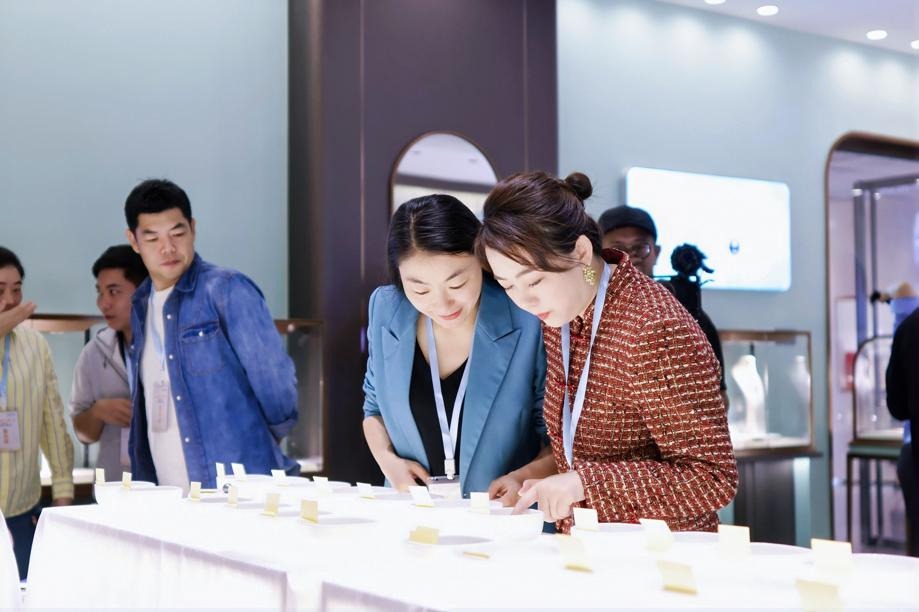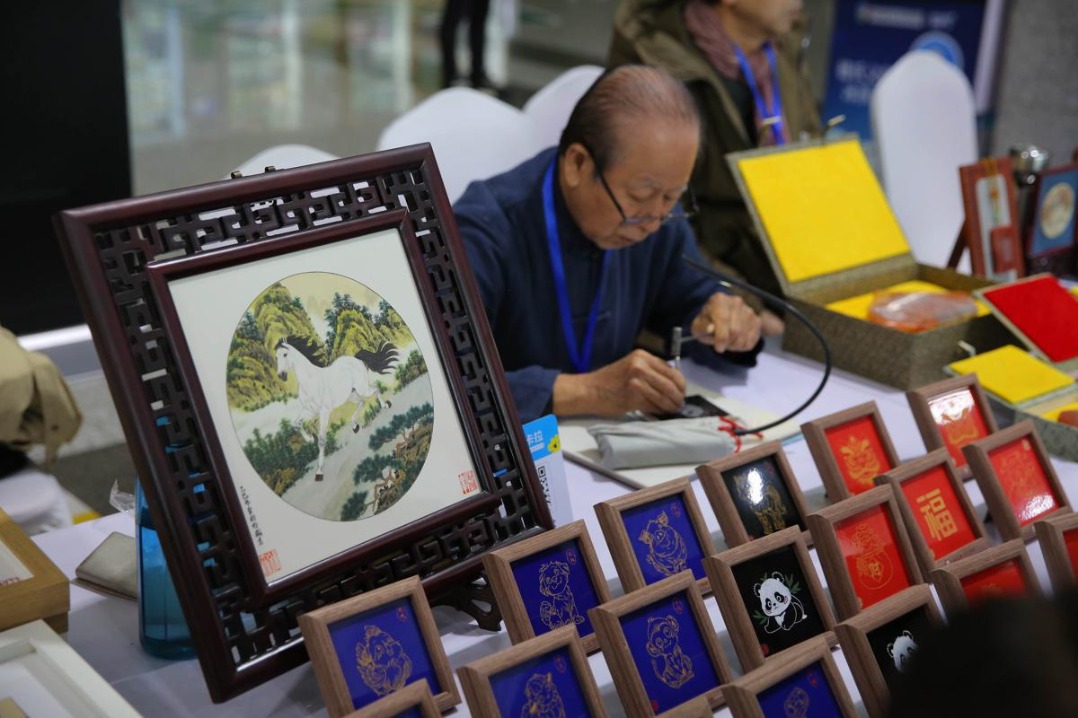HK stands to reap healthcare bonanza in Bay Area

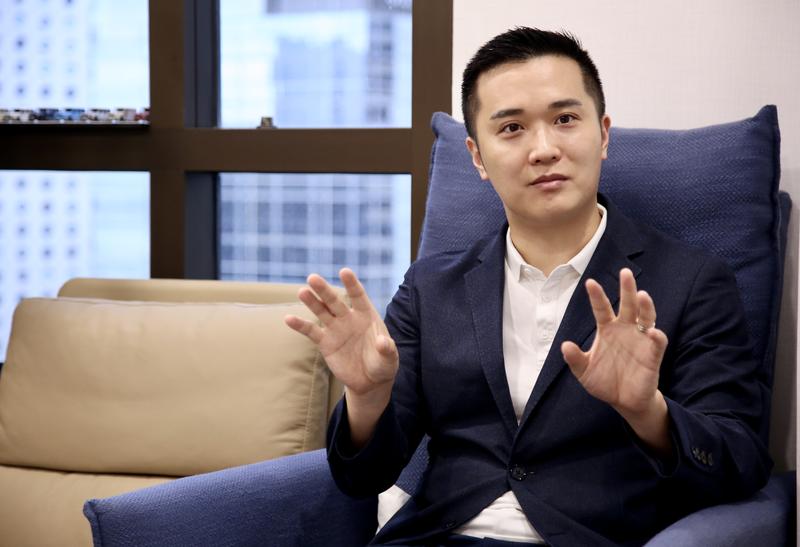
Radiologist Kevin Lau Chung-hang was born in Hong Kong in 1981. Lau, who immigrated to Canada with his parents at the age of 5 and then moved back, believes individuals always have a shared future with the place where they live. This certainly holds true for Lau and his home city, Hong Kong.
Lau worked for more than 10 years in the public healthcare system under the Hospital Authority in Hong Kong. He developed a sharp understanding of the strengths of the system and a market bonanza in the 11-city cluster of the Guangdong-Hong Kong-Macao Greater Bay Area.
This inspired Lau and his partner to establish a healthcare service brand, Trinity Medical Centre, in Hong Kong in 2016. From there, they forayed into the Greater Bay Area.
In a recent interview, Lau, who have served in many positions of public offices, shared with Kathy Zhang some of the defining moments in his life, and his confidence in the promising prospects of the bay area, where he believes people in Hong Kong, Macao and Guangdong will create their shared future.
Why did you study medicine and become a radiologist?
It was my mother who steered me toward medicine. In the summer prior to my last year at secondary school, she suggested that I try volunteering at Queen Mary Hospital. That proved a life-changing experience.
Up until then, as I come from a fairly privileged background, I’d rarely interacted with doctors and hardly at all with patients. So spending time at a hospital gave me an entirely new outlook on life. It made me realize that being a doctor wasn’t just about prescribing medicine or specifying treatment. It was about making real human connections and demonstrating the kind of empathy that can make a world of difference. It was that realization that led to my decision to become a doctor.
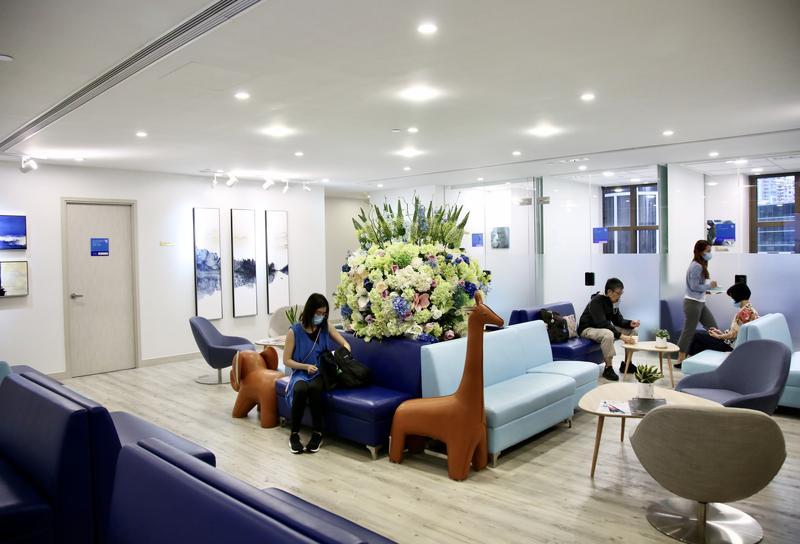
What motivated you to leave the public sector and set up a private medical brand?
From my point of view, Hong Kong’s medical care level and professional standards are very high, but there are still shortcomings in terms of how patients are treated on a personal level. As a result, we are always at pains to deliver more empathy and compassion when dealing with patients. From the beginning, that’s what my partner and I wanted Trinity to become synonymous with. It was always our aim to offer the highest level of professional medical services while maintaining a five-star hospitality feel.
In the early 2000s, I was in Hong Kong studying medicine. Through a program of the nonprofit organization Medecins Sans Frontieres (Doctors Without Borders), which provides medical assistance to people in distress or with limited medical access, I went to visit the Guangxi Zhuang autonomous region of the Chinese mainland. Patients from the village we visited had no access to medicine for tuberculosis and the right testing (for the infectious disease). There were a lot of tuberculosis patients, so it was heartbreaking. We tried to provide them easy access to medicine, because I think tuberculosis is a disease that if you can get access to the right medicine and right treatment, then you can be cured, while if you don’t get it, then you won’t make it.
That experience really inspired me to help the patients in need. I feel like I should always try to help those who are sick. So with that goal in mind, I set up Trinity in Hong Kong in 2016.
Could you tell us more about what Trinity does?
We started in 2016 as a medical group. We do a series of medical services from checkups, advanced imaging, vaccinations, genetic test, medical aesthetic, supplements and skincare products. The number of our employees went from 20 in 2016 to over 100 this year.
We’ve noticed that another industry that Hong Kong takes a lot of pride in is the insurance industry. We are one of the designated medical centers for some top insurance companies, as some of their clients are required to do medical examinations because of the nature of the insurance.
I think this was our initial touching point with the Greater Bay Area business as many clients coming to Hong Kong at that time to buy insurance were from the mainland cities in the Greater Bay Area.
I feel that it is something meaningful, especially for the development of the Greater Bay Area in the future.
Now we are still evolving. We are looking at different new opportunities, and we look forward to continually expanding our footprint in Hong Kong to cater for more patients.
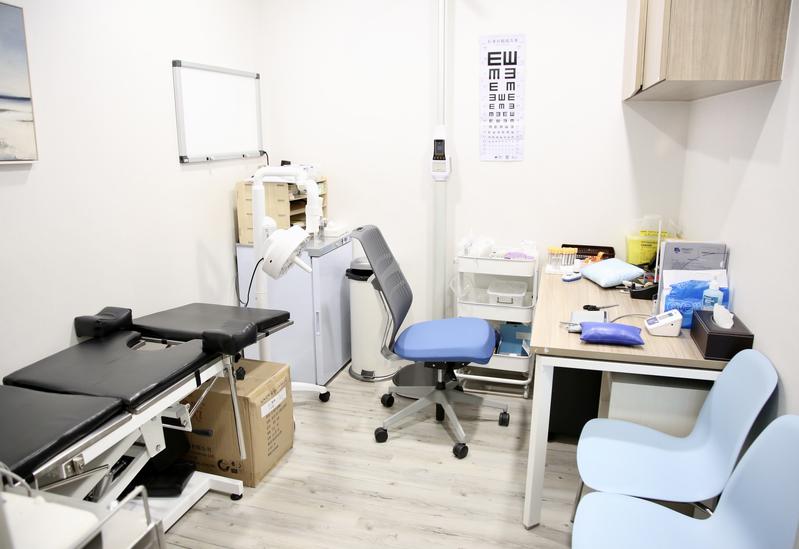
Do you have any plans to expand the business to the Chinese mainland?
Over the past five years, we’ve had the pleasure to work with different insurance companies. Last year, there was a new policy which allows two types of cross-border insurance to be sold in the Greater Bay Area. One of them is related to medical insurance. So we are actively looking into setting up our own brand as a medical center in the mainland cities of the Greater Bay Area. We are looking at different partners in different cities in terms of what services we could provide. For example, we want to provide health checkups because this is an area where we have built strong brand awareness.
Do you have a timetable in mind for the expansion?
We have a back-office team that’s already in Shenzhen. Depending on the pandemic situation and the reopening of borders, we hope to open within the next 12 months where we will have some sites, maybe Futian district of Shenzhen or Nansha district of Guangzhou, to provide services because most Hong Kong insurance companies have already chosen the locations of their offices in the (mainland cities of the) Greater Bay Area.
What role does your experience living and studying in Hong Kong, Canada and the United States play in shaping who you are today?
Having a different model of education in different countries and regions broadened my horizons. I learned about different cultures and learned to appreciate the uniqueness of each culture.
Let’s say, buying groceries. It is very easy, fast, and you have many options if you want to buy some fruit in Hong Kong. I just need to go to the supermarket downstairs. But when I was in Vancouver, I would probably have to drive 15 or 20 minutes to the closest supermarket. There is usually a lot of food in Canada, but categories are probably in a less-international spectrum.
In Canada, there may be only one cashier, and there’s much dialogue. They would like to ask, “How’s your day?” So I think what normally in Hong Kong would be a 10 or 15 seconds sort of procedure could be a few minutes in Vancouver. I’m not saying which is good or bad.
So in Hong Kong, I appreciate the efficiency, the easiness of buying fruits just downstairs. When I was in Canada, I appreciated the space and friendly small talk between strangers.
Such understanding is helpful when I look at the development of the medical and healthcare industry in the Greater Bay Area. It gives me confidence to try to provide high-quality healthcare services to people living in different places.
What’s your own experience with regard to the Chinese mainland?
In the past, in my personal capacity, I’ve helped different medical groups and different private equity funds as a strategist and a consultant, to help them set up new medical centers in the bay area and other parts of the Chinese mainland.
There are challenges in understanding the logistics and the workflow there. Take the opening of a corporate account, for example. For a Hong Kong business owner to start a new business in Shenzhen and open a corporate account, it is very complicated. I think these kind of processes need to be made easier.
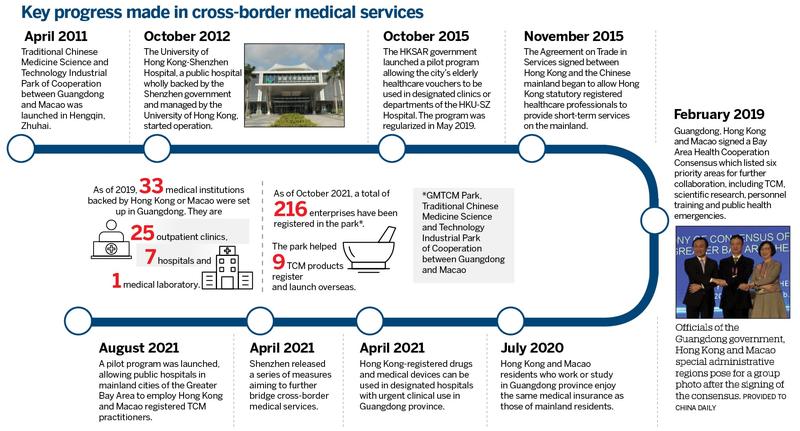
Can you share with us what Hong Kong’s strengths in healthcare are?
I think we have a very solid training system and superior research capabilities that ensure people receive quality, professional healthcare services. Also from a public health angle, life expectancy in Hong Kong for many years has always been either first or second worldwide for both males and females. The rankings of our medical schools have also stayed at the top level. We have a very structured training system at the bachelor level and at the specialist level. We have access to some of the newest drugs and ways about how we are able to provide the drugs, deliver the medicine. We’re ranked No 1 globally on the five-year remission rate for lung cancer. And I can go on about breast cancer and colon cancer. We’re either ranked No 2 or 1 globally. I’d say that Hong Kong is in a very unique position.
How do you see the Greater Bay Area in the coming years?
In 2000, I was awarded a scholarship which took me to different mainland cities, such as Shanghai, Chengdu and Xi’an. I remember visiting Pudong district in Shanghai, and it was like bare land. Today, Pudong is a leading financial hub. Skyscrapers and various multinational corporations are located there. A large number of people go into Pudong every day.
Just looking at Pudong in the past 20 years, we see that China is evolving very rapidly. I think for the Greater Bay Area, we could take a similar track. This is the biggest bay region, likely to be the fastest growing region. With all the unique advantages, I would say the speed of the changes in the Greater Bay area will be astonishing.
The GDP of the Greater Bay Area exceeds $1.6 trillion and its population exceeds 86 million, 10 times the total population of Hong Kong alone. New blood is pouring into the region. Last year, the total sales of the healthcare industry in Guangdong province alone reached nearly 200 billion yuan ($31.3 billion), ranking first in China, and the figure will continue to grow.
All these data show that the Greater Bay Area residents’ awareness of health management will be improving, and there is a huge demand for medical and healthcare services.
I am optimistic that there will be many new opportunities even for global players. Just keep your eyes on the development of Hong Kong, read more about Hong Kong, talk to different friends who have been here, and come for a visit to see for yourself. And I think they will be pleasantly surprised by what will happen in the city and the entire Greater Bay Area.
Kevin Lau Chung-hang
Alma mater:
The University of Hong Kong; Royal College of Radiologists (the United Kingdom); Hong Kong College of Radiologists
Social activities:
Nonofficial member of Commission on Poverty; Nonofficial member of Women’s Commission; Nonofficial member of Steering Committee of Child Development Fund
This interview has been edited and condensed for clarity.
- China's Global Governance Initiative receives positive feedback at forum
- China's Xizang sees steady tourism growth in 2025
- First-of-its-kind pearl auction held utilizing Hainan FTP
- Agarwood exhibition steeps Shanghai museum in fragrance
- The Fujian Coast Guard conducts regular law enforcement patrol in the waters near Jinmen
- IP protection for new fields to improve
















